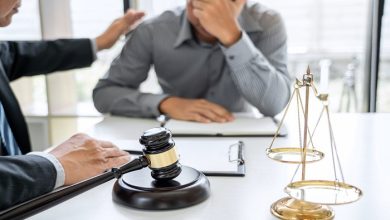How to Fight Back Against Baseless Criminal Allegations

It is illegal to falsely allege that another individual has committed a crime when they have not. If you find yourself at the receiving end of such misconduct, it is important to consider taking legal action with respect to the reputational damage that the defamation can cause. An experienced attorney can guide you through the process and help you determine what steps would be appropriate in your situation.
False accusations of criminal charges or actions can cause the wrongly accused to face serious consequences. People who are seeking contested custody of their children in a divorce or who are pursuing sexual harassment or domestic violence cases against others often find themselves in this situation. Most of the time, the allegations are baseless and are not supported by any legitimate evidence.
If you, too, have been hit with false accusations, you may feel disoriented or panicked about the situation. Rather than accepting the consequences, it is important to take action against the false allegations and hold the culprit responsible. While the full truth may never reveal itself, here are some steps you can take to improve the situation.
Hire a criminal defense attorney, especially if there is a potential that the police may formally press charges against you or investigate your actions. It can be challenging to navigate the complex legal procedures involved in maintaining your innocence in the criminal justice system. You should be fully aware of your legal rights and benefit from an attorney’s in-depth knowledge of the process. The first step to fighting false criminal allegations should be hiring a Philadelphia Criminal Lawyer.
A legal professional will have extensive knowledge of how to handle your case, as they regularly handle matters just like yours. A lawyer can help you develop the right strategy to fight the false allegations and protect your reputation from further damage.
Don’t take the accusations lightly. It is important to understand that you could face serious consequences as a result of the allegations, including financial penalties or jail time. Even though you know you are innocent, you cannot assume that the jury, prosecutor, police, or judge will arrive at the same conclusion if your case progresses to criminal court. Take the accusations seriously so that you are well-positioned to act strategically and protect your interests, with your lawyer’s careful guidance.
Avoid taking any action in certain situations. Talk to your attorney before you take any action. Sometimes it can be better not to testify on your own behalf in criminal court. It can also give you and your lawyer a chance to determine whether the prosecutor has any evidence that proves you may have committed a crime. In the meantime, you can look for witnesses and evidence that prove that you are being wrongly framed by the other party.
Collect details of the allegations against you and of any charges that you may face. An attorney can take proactive measures to prevent fraudulent allegations against you from ruining your life. You may consider discussing your case and the accusations with the prosecutor or police to glean more information about the criminal case. At the same time, you may be able to provide evidence that convinces them of your innocence.
Ensure that your case is properly and fairly investigated. If you face formal criminal charges, your lawyer will need to investigate the situation thoroughly, examine the prosecutor’s evidence against you, and retain and interview witnesses. A proper investigation can help to evaluate the weaknesses and strengths of the prosecutor’s case against you and allow your lawyer to prepare an appropriate defense on your behalf.
Collect documents and physical evidence. If there may be physical evidence that can strengthen your defense, such as photographs, documents, clothing, or any other item, be sure that your criminal defense lawyer knows about it and that you collect it as soon as possible. Additionally, you should look for any available documentation, such as emails, correspondence, GPS data, and receipts, that can potentially prove your innocence.
Reach out to witnesses who can help you in your case. List all the potential witnesses who may be able to provide strong testimony on your behalf to fight the accusations. Provide all these details to your lawyer, who can determine which of these people would be the most beneficial to your defense.
Consider taking a plea agreement if your case seems weak. In the most challenging cases, when it may be hard to prove your innocence, you may opt to enter into a plea agreement with the prosecution to decrease the number of charges you face and the potential severity of the related sentence. In such situations, especially if the allegation involves accusations of driving a vehicle under the influence of drugs or alcohol, it can be best to take advice from a Philadelphia DUI Lawyer.
There are certain things that could worsen your situation. If you face false accusations:
- Do not destroy evidence, even if it could be used against you.
- Avoid engaging in contact with witnesses or the victim, unless you are advised to do so by your lawyer.
- Do not speak to criminal investigators, the police, or the prosecution without your attorney’s express consent.
- Do not agree to take a DNA test or any other examination without your lawyer’s knowledge
It can be very difficult to face false accusations, and the criminal justice system can be tricky to navigate. A criminal defense attorney can draw on their relevant skills and experience to help you improve your chances of preserving your reputation and your freedom. It is important that you do not attempt to get rid of the allegations on your own. Instead, stay silent, find a seasoned lawyer, collect evidence, and follow your attorney’s advice throughout the process.





